MSNBC’s Eugene Daniels is Rebuilding Trust in Journalism
MSNBC rising star Eugene Daniels, co-host of "The Weekend," sees past the "shiny objects" of the day and focuses on what matters.

“My focus is on what the truth is,” says Eugene Daniels. “And if people don’t like the truth, that’s their issue, because I’m never going to shy away from holding powerful people accountable. I’m never going to shy away from telling stories about people who can’t tell them themselves. That’s the goal.”
A former Politico correspondent and the current president of the White House Correspondents’ Association, the journalist was recently tapped by MSNBC to serve as a co-host — alongside Jonathan Capehart and Jackie Alemany — for The Weekend, the cable news outlet’s Saturday and Sunday morning show. The program will provide an opportunity to look beyond what Daniels calls the “shiny objects” in the news cycle and provide viewers with information relevant to their lives.
“Policy and politics are one thing, and the backroom intrigue is very interesting,” says the 36-year-old. “It tells you a lot about the policy priorities people have. But focusing on the actual impact of policies is the most important.
“When the price of eggs is what it is, what does that actually mean for a family? When DOGE wants to cut something, who is losing out, and how do they know they’re losing out? When we’re talking about tariffs when it comes to Christmastime, are people going to be able to afford to buy gifts for their kids?”
A self-described “military brat,” Daniels, the eldest of three children, was born in New York but spent time in various locales and military bases. After a move to Fort Hood in his pre-teen teenage years, Daniels attended Shoemaker High School in Killeen, Texas, while his father was deployed overseas. At Shoemaker, he became a football player, playing defensive end, which resulted in him being recruited by college scouts.
He earned a scholarship and committed to Colorado State University, where he not only played but served as a Student-Athlete Advisory Committee representative. After tearing his labrum in his sophomore year — and continuing to play despite the injury — Daniels, a journalism and technical communication major, eventually stepped away from football and began focusing on working in student media, paving the way for his entry into the world of professional journalism.
“I think what benefitted me the most was student media,” he recalls. “They would just give you a camera or give you a notepad and send you out and make you go do a story, and you learn how to be a real reporter that way. You learn that the shoe leather aspect of this job still really matters, no matter how much technology changes it.”
After graduation, Daniels worked at NBC affiliate KOAA in Colorado Springs as a producer for the station’s 4:30 to 6 a.m. morning show to get his foot in the door. He eventually talked to station leadership about becoming a multimedia journalist in the hopes of eventually becoming an on-air personality.
Despite putting in the hard work, meeting with a voice coach, producing news packages, and doing some on-air segments, his goal was disrupted after the general manager told him his voice was “too Black” to be a full-time on-air reporter in Colorado Springs.
Daniels eventually left the station and went to work for the digital news organization Newsy (since rebranded as Scripps News) in its Columbia, Missouri offices. He tried to change the way he spoke to advance his career.
“The first day that I did teleprompter training with Christina Hartman, who was vice president of news at the time, I was kind of doing the ‘Walter Cronkite’ voice,” Daniels recalls. “She stopped me and said, ‘What are you doing?’ And I said, ‘I’m anchoring.’ And she said, ‘That’s not what you sounded like. We hired you because of you.’
“The lesson I took from that was to find places that want you,” he continues. “Find jobs and families — and ‘found families’ and friends — who want you, don’t want to change you, and accept you as you are.”
Daniels eventually transferred to Newsy’s D.C. bureau, where he worked on a co-branded video series with Politico, which eventually hired him as a video producer. He would later become part of the outlet’s political reporting team, co-authoring “Playbook” while also serving as a White House correspondent.
During that time, he became an MSNBC contributor. In March, he was offered the on-air anchor position he’d been seeking for years — he would co-host The Weekend alongside longtime MSNBC contributor and Washington Post opinion columnist Capehart and Post reporter Alemany.
“I got a call from [MSNBC President] Rebecca Kutler, and she offered me the chance to do this show,” he says. “And I was so excited, because everyone at MSNBC was always great to work with. Then, when I found out it was Jonathan and Jackie [who I’d be working with], I just couldn’t have been more thrilled.”
Capehart, a fellow Black gay journalist, was equally thrilled to be working with Daniels, whom he’s known for years, serving as a career mentor and sounding board for the young journalist who is 21 years his junior. Capehart recalls conversations with Daniels about balancing print and television obligations, dealing with the ups and downs of journalism, confronting being the rare Black or gay face in the political media universe, and offering advice on a host of other issues.
“We’ve always had that kind of good relationship where, whenever he called or emailed, I picked up the phone or responded,” Capehart says. “And so we’ve been friends for all these years.
“I knew the moment Eugene started doing television that it would only be a matter of time before he got a show because he brings all that he is — as a writer, a reporter — to the table, but he is also able to put his reporting into context for the audience.”
Daniels is excited about the future of The Weekend. He’s hoping to leave MSNBC viewers better informed about what’s going on in the world and equipped to make crucial decisions.
“Because of everything that everyday folks are dealing with, all of the news that’s coming at them as they’re literally trying to survive, they don’t all have time to look through every single document to figure out what is going to hurt them and their pocketbooks,” he says. “For me, that is really what journalism is about — giving people the information they need to make their decisions, and what they should know beforehand, as early as we can possibly get it to them.
“We had our first shows this past weekend, and we have such a great team around us,” he adds. “And the focus is on news, news-gathering, and conversations that are important, things that people deserve to hear.”

METRO WEEKLY: When did you first know you were gay, and when did you officially come out?
EUGENE DANIELS: I always knew. I knew something felt different than the rest of the kids, and what the rest of the world was telling me was the “norm.” I don’t look back and think, “Oh God, I struggled with it,” but I did.
My family is from the South, and they are also religious. So I struggled with the idea that I would be able to come out, and I had eventually just accepted that I would marry a woman and have kids, and that would be my life, that would be the way that I lived. I had girlfriends until I was about 27. But then the massacre at Pulse happened, and I had this really scary thought that I could die, like all of those beautiful souls did, and my family wouldn’t know who I was. So I started to come out.
I was moving to D.C., and I had found an article from The New York Times that said D.C. was the gayest city per capita, and I felt like, “Okay, this might be a safer place than Missouri.” I told one person, and then another person, and then another person. And every time, I thought I was going to vomit. But every time, it got a little bit easier. And I found that my family and friends embraced it and were fine with it.
We hear all the horror stories about how families can react, and, unfortunately, we’re in 2025, and those can continue to happen. I was really fortunate that my family kind of shrugged their shoulders and said, “We love you anyway, and we want the best for you. You need to live your life.” They have continued to be extremely supportive of me and my husband — they’re all very close to him. This weekend, when the show was going, my mother and my husband were calling each other during the breaks to talk about what they had just watched.
So what I found was, sometimes with the right families, families that really do believe in unconditional love, folks can surprise you in the right way. When I came out, because I was prepared for the worst, I would tell folks, “Guys, I love you, and I know this is a big change for everybody, and if you need some time, take the time, but the Eugene train is going. We can stop and pick you up on the way, but it’s moving forward.” So it was kind of this perfect story. To this day, they’ve been completely supportive.
MW: How did you get involved with the White House Correspondents’ Association and become part of leadership there?
DANIELS: When I started covering the [political] beat, while working at Politico, there were a couple of people who said they were looking for younger folks who were in the digital space to be on the board. Everyone on the board, and everyone who’s ever been on the board, is kind of focused on problem-solving and giving back, and I really did have a good experience with the White House reporters, and so I said, “I want to give back.”
I joined the board and, from there, got put on the presidential track. So you do treasurer for a year, with the idea of becoming vice president and then president. Interestingly enough, I ran for the [vice president] seat, but the way our bylaws are [written], I had to take over as president after Kaitlan Collins got her new show. I’ve been president since last July. I took over on the Monday after the assassination attempt on President Trump. The next week, Biden dropped out, and then Harris became the de facto nominee. And from there, it was just putting fire after fire after fire. I’m trying to make sure that, most importantly, the folks who are on our beat get what they need to do their jobs.
MW: How do you see the White House Correspondents’ Association moving forward in terms of its relationship with the administration or even its influence in Washington?
DANIELS: We don’t think about it as influence. Our job is to — no matter what walls are put up by different administrations – focus on making sure that folks have what they need to do their jobs. And, most importantly, that the American people get access, information, and hear from the leaders of their country. And so that is where our focus is, and that’s where our focus will always be. We’re still around. We’ve been around for more than 100 years, facing all types of different attacks on the media in that time period. And what we have worked to do is stand with our members as they’ve dealt with some of these unprecedented attacks that they’ve experienced.
MW: Well, just to mention one example, the ongoing feud between the Trump White House and the Associated Press. Ideally, you are standing with the AP and defending their right to access. Obviously, there are ongoing court cases that you can’t comment on, but how do you promote access to the White House at a time when the current administration appears to be trying to punish and deny access to outlets that it deems hostile to its political agenda?
DANIELS: You’re right. There are some conversations that I can’t get into, because those happen behind closed doors, and we do them in that way so that we can actually get things done, and talk about every single thing that we’re doing. But look, we’ve been extremely supportive of the Associated Press. We put out statements. We put together a letter to the administration. We signed an amicus brief in their lawsuit. I’ve been to court to stand with them in front of them and been in constant contact with them to see what they need. I am still continuing to push the White House to do the right thing.
Because at the end of the day, as the Associated Press has said, as we’ve said, it’s not even about one outlet, it’s about all of the outlets. It’s about the American people, who are losing the most here, who need to have independent reporters who [can] go into the Oval Office, or on Air Force One, or at Mar-a-Lago, or on the golf course, or wherever, and focus solely on making sure that the American people have the information they need to live their lives and make decisions. That’s the whole job, that’s the only thing that the Associated Press is asking for. And government interference into that process, and into the editorial decisions of organizations, is something that we are always going to stand against.
MW: We’re seeing the White House Press Corps be reshaped through the inclusion of Trump-friendly media outlets, taking up spaces in the press pool that previously would have been given to independent broadcast or print outlets. How do journalists walk the line between reporting facts and maintaining access, especially at a time when they seem to face external pressure to write favorably about people in power?
DANIELS: Well, there’s no balance, because there’s no need to write favorably or unfavorably when you’re starting a story on a White House, on a president, on their staff, on members of Congress, on mayors. Because at the end of the day, our job is to tell the truth and to write the truth, right? And our folks are continuing to do that.
Despite the challenges that the White House has put in place, the people who are members of our association, people who are at independent news organizations, real news organizations, or who are independent journalists, are still doing that, who are still asking very hard questions, asking questions that the American people need answers to, and continuing to work to do their jobs.
And I think that’s the focus. I’m not exactly sure what external pressures you’re talking about, but that is not a focus of the members of the board or of the members of our association. There are all types of different pressures of being a journalist, but no matter what the White House says, we focus on the work. And the people wanting us to write nice things about the leader of their party or their preferred candidate, they’re barking up the wrong tree. Because that’s not why we got into the business.
MW: You’ve recently launched this new iteration of The Weekend on MSNBC, covering important and breaking political news stories. How do you keep up with the news cycle, which is obviously ever-changing?
DANIELS: It’s difficult, like it is for everybody, because it’s more than drinking from a firehose, it’s like someone dumped the entire ocean on you every single day, because of the amount of things that are happening. I’m a reporter, so staying on top of the news cycle is about calling people who are making the news, being in constant contact with members of Congress themselves, or their staffs, and administration officials, former people who worked in the administration, people who work in business, and who meet at the White House, people who are on K Street, lobbyists, and constantly trying to get first-hand accounts of what’s happening.
After that, it’s just reading any and everything. The great thing about doing [Politico] Playbook is, you have to be so deeply embedded in everything. Part of my everyday job is reading all day long. We have such a good team [at MSNBC], so when you’re talking about, “How do we decide what gets on the show?”, we work in tandem with our executive producer, our senior producers, line producers, segment producers, the [associate producers], to figure out what are the stories — especially by the time we get to Saturday and Sunday — that we want our viewers to hear about.
We think about, “What are the angles and the stories that are happening that we want to focus on?” And frankly, “What are the things that are not shiny?” Because some days during the week, there’s a huge news cycle about something that the president said, or a member of Congress said, and that is actually more of a “shiny object,” when real things are happening elsewhere. It’s about digging through all of that and figuring out, “Okay, what are they trying to keep hidden? What is the left hand doing while the right hand is doing jazz hands over here on the other side?”
MW: Given that there are often multiple stories that meet that criteria, how do you determine what makes it to air and what doesn’t? How do you exercise your editorial judgment in that situation?
DANIELS: We try to figure out what are the things that are interesting to us? What are the things that are interesting to the folks that we know have been watching the show, the folks who want to watch the show?
We want to have conversations with powerful people, so leadership, members of Congress, and also advocates who are pushing their parties to do things differently, or activists. But most importantly — and this is the one that is often forgotten in D.C. –- the people who are actually impacted, who policy and politics hit the hardest. Those are the kinds of news stories that we’re always looking to try to tell. We’re all news folks at heart.
This past weekend, we had [Los Angeles Mayor and former Congresswoman] Karen Bass on. And we made news that she had not talked to President Trump since their first conversation right around the inauguration. We had John Bolton on, talking about [former National Security Advisor Michael] Waltz and “Signal Gate,” and [Marco] Rubio having four jobs now, including Secretary of State and National Security Advisor, and what that means for the American people and their ability to feel safe in this country with all of the threats that are out there.
We talked to Beto O’Rourke and Doug Jones about what the Democratic Party needs to do differently. We talked to [Democratic National Committee Vice Chair] David Hogg about the same thing. We also talked to critic-at-large Robin Givhan about Black culture having a moment right now, whether it was Sinners the movie, the Cowboy Carter tour, the Met Gala and the Black dandyism theme that’s happening this year, and what that means to people. So it’s any and all of those things. And we decide what goes in the show [by having] lots of conversations about what the three of us are interested in, what our [executive producer] is interested in, what the segment producers pitch to us throughout the week. You start with this humongous ball of clay and just hammer out a show from there.
MW: Have you ever felt pressure to alter your reporting from the corporate side of the reporting business?
DANIELS: No. I didn’t feel pressure at Politico or Newsy. I haven’t felt pressure at MSNBC because I only go and work at news organizations that are about the news and about the truth. I don’t know what the business people are doing — I never do. My job is to focus on the facts, and if I can back it up, our bosses have our backs. We’re building a news-gathering operation at MSNBC. And my job as a host of the show is to cover the news honestly and truthfully and find out information that people are trying to keep hidden. And as long as I’m doing that, our bosses are happy.

MW: Do you worry about the erosion between the reporting and corporate sides of media affecting journalism?
DANIELS: One, and just to be clear, I’m not just talking about the wall on The Weekend, it’s also just at MSNBC writ large, our jobs are to do our jobs, just to be clear. I hope that journalists will be allowed to do their jobs, and news leaders will defend their ability to do that against whoever, whatever influence that may be, whether it’s from the government, from a business, from a person in power, or whoever it might be. I think that people deserve honest, unvarnished truth more than ever.
It’s more and more difficult for people to understand what is truth. We have misinformation and disinformation that’s out there. AI is not helpful in that. And so journalism is facing a lot of challenges, and every time there’s a new technology, journalism has had to find a way to rise above it. And what I have been heartened by, in my experience, and the folks that I talked to, because that’s all I can talk about, is that people are standing up for journalism, and I think that’s really important.
MW: Thinking about the historic nature of your show, where you have two Black gay men as co-anchors, how significant does that feel? And how do you feel that unique perspective informs the content of the show?
DANIELS: I think on the last part of the question — the unique perspective. I’ve always believed in bringing your full self to work, every experience that you’ve had. I’m a military brat, I’m Black, I’m gay, I am from the South, my grandfather was a preacher. And so all of those aspects influence the kinds of questions that I have for people. The communities that I’m a part of, I know first-hand what they’re dealing with every single day.
I know the dangers that trans kids are under. I understand what it’s like to be a Black American in this country, whether it comes to criminal justice or the economy — and when the economy is bad for white people, it’s really bad for people of color. And I think bringing all of that [perspective] is important.
I’ve always pushed back on this notion that you can’t cover certain topics because of who you are because who I am is actually a [form of] expertise, not a bias. And I think that is embraced at MSNBC because they want to make the anchor tables, the conversations that we have, look like America. What are people talking about, and who are the people having those conversations?
Did I ever actually think I would be an anchor on a TV network? Probably not. It’s one of those things that you’re like, “That would be so lovely.” And the opportunity to do it in this moment, when all of these important things are happening, with the country feeling how it’s feeling at this kind of inflection point, and to be able to do it with Jonathan Capehart, who has been a friend of mine for years, and a mentor, and someone who I just have really always looked up to is just a great opportunity.
I think about the little kids who maybe want to be a reporter, or maybe want to be an anchor, but don’t see themselves on television, don’t see themselves out making news and doing the things that my [white or straight] counterparts are doing in greater numbers. I’m thinking about the kids and the parents and the teachers who write to me, and say things like, “This kid is getting bullied because he likes to wear nail polish, can you just take a picture of yourself with nail polish at the White House, or on Air Force One, or doing something that to this kid would be impressive?” Being able to serve [in] that kind of role for someone, even one kid, one person who is having that tough time, it doesn’t get much better than that.
The Weekend airs Saturdays and Sundays from 7 to 10 a.m. on MSNBC. Visit www.msnbc.com.
Follow Eugene Daniels on X at @EugeneDaniels2
Support Metro Weekly’s Journalism
These are challenging times for news organizations. And yet it’s crucial we stay active and provide vital resources and information to both our local readers and the world. So won’t you please take a moment and consider supporting Metro Weekly with a membership? For as little as $5 a month, you can help ensure Metro Weekly magazine and MetroWeekly.com remain free, viable resources as we provide the best, most diverse, culturally-resonant LGBTQ coverage in both the D.C. region and around the world. Memberships come with exclusive perks and discounts, your own personal digital delivery of each week’s magazine (and an archive), access to our Member's Lounge when it launches this fall, and exclusive members-only items like Metro Weekly Membership Mugs and Tote Bags! Check out all our membership levels here and please join us today!








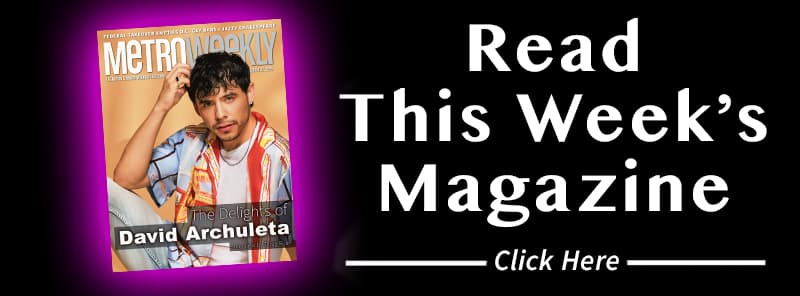
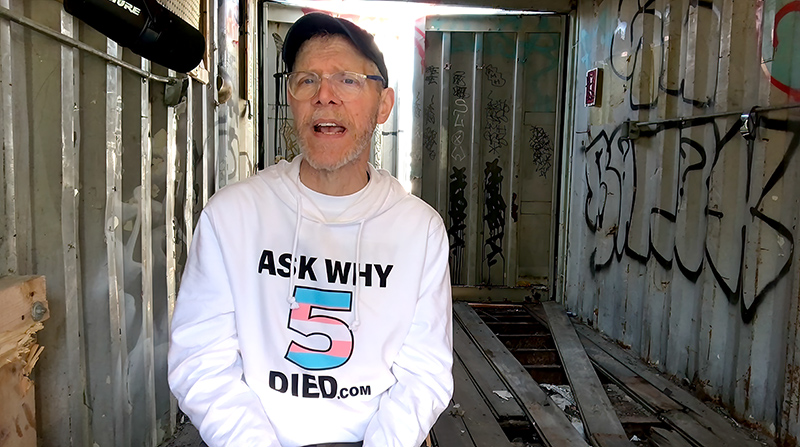
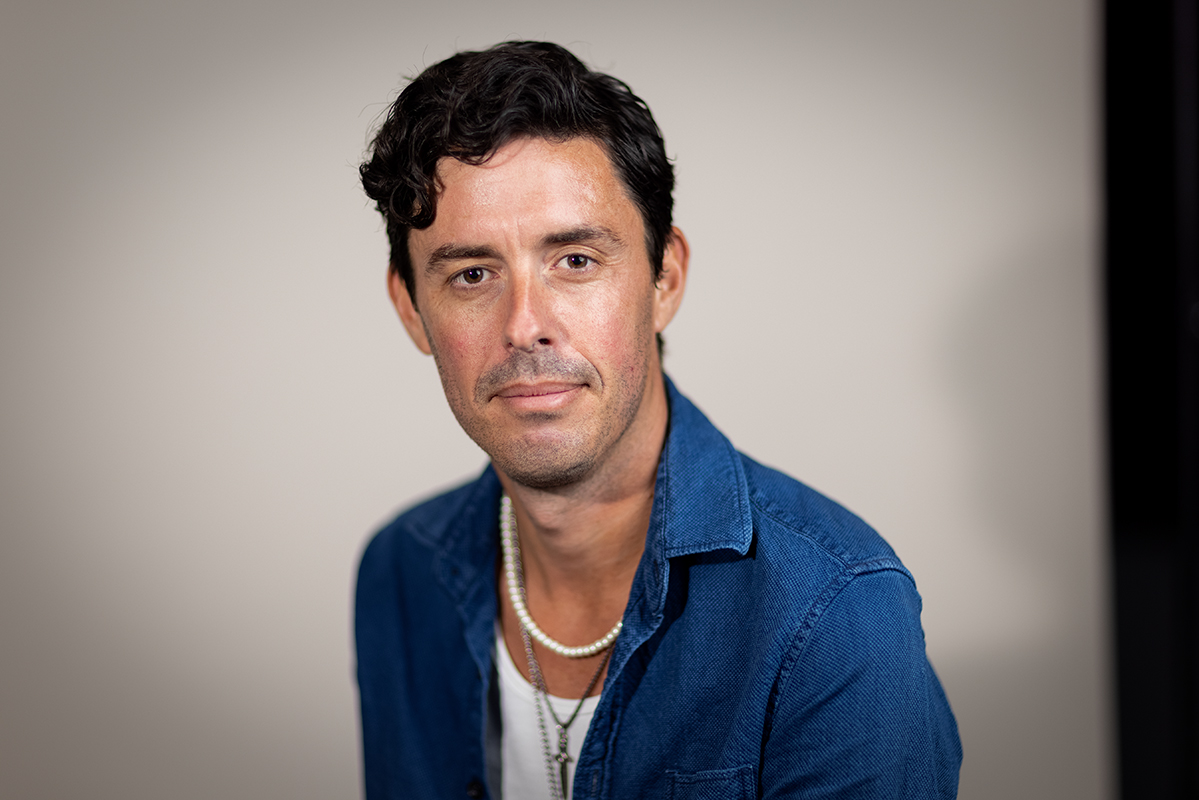













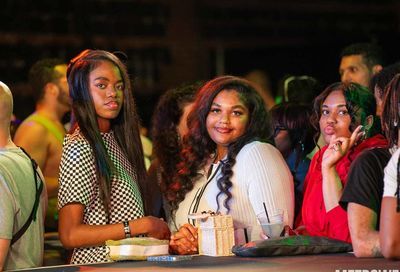
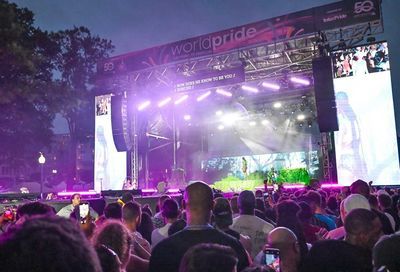
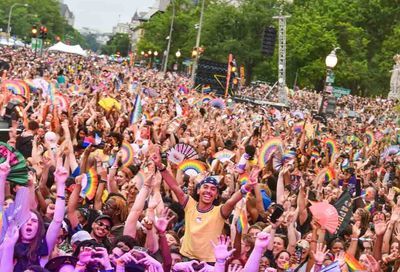
You must be logged in to post a comment.